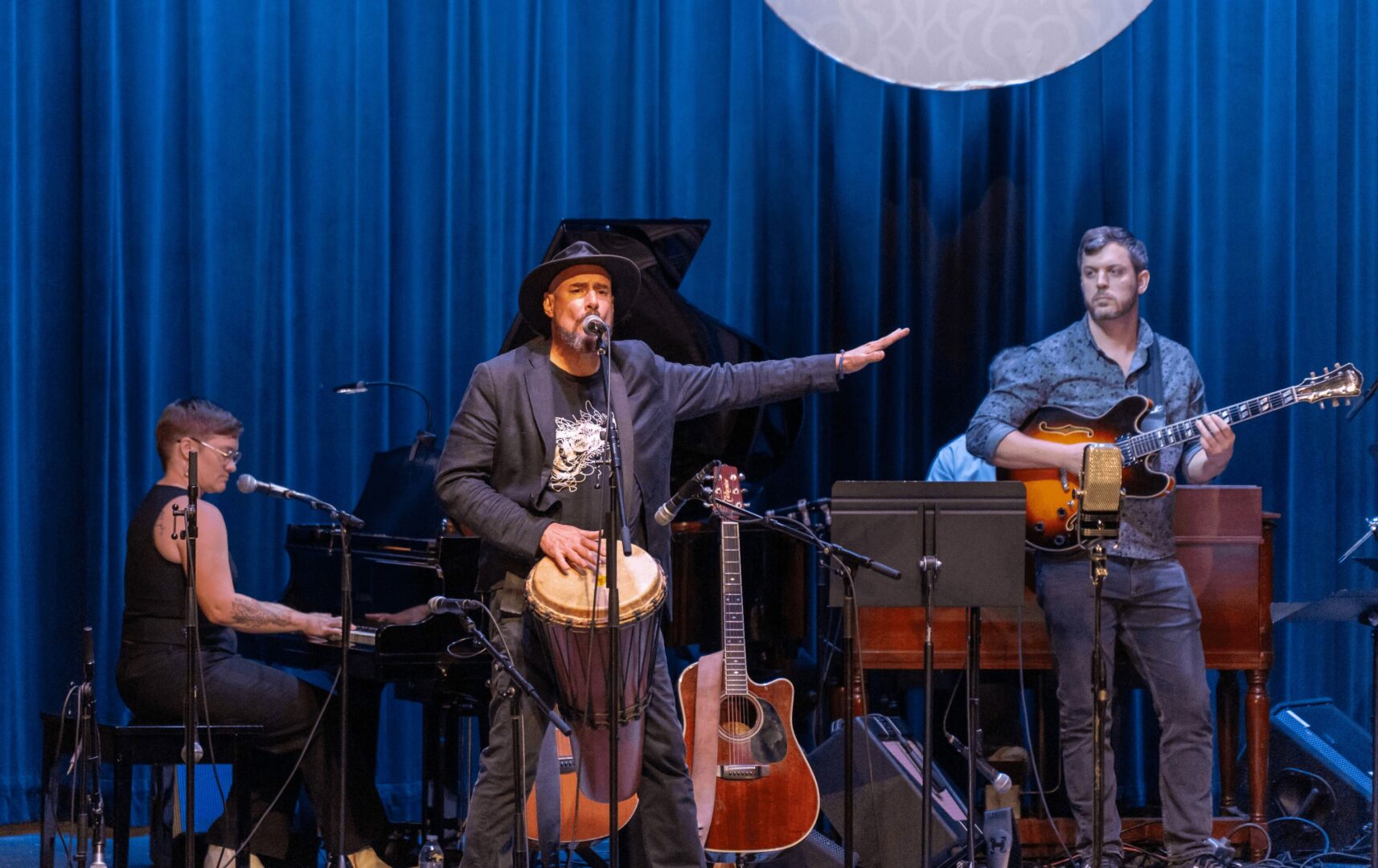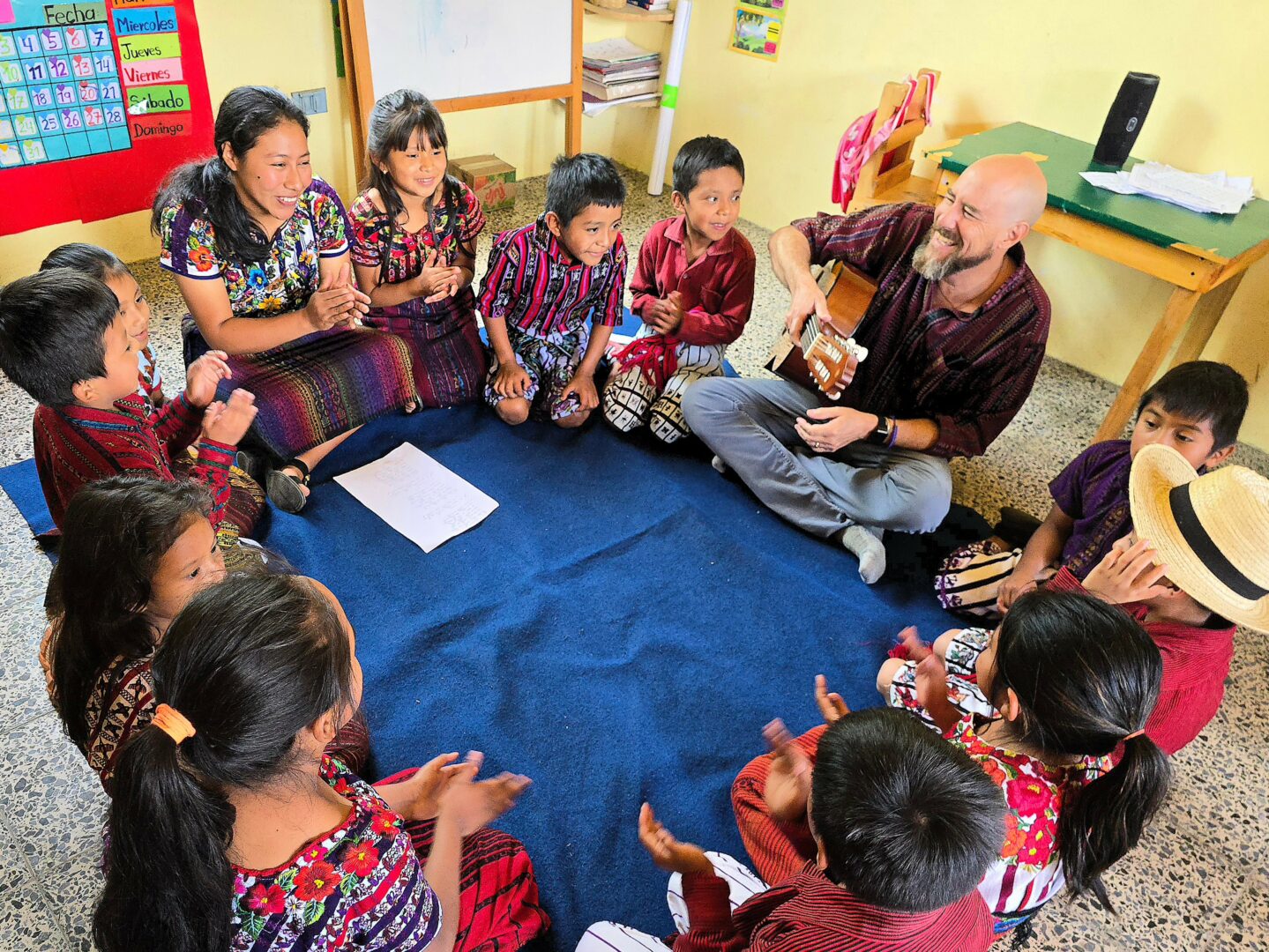We were lucky to catch up with David LaMotte recently and have shared our conversation below.
David , so many exciting things to discuss, we can’t wait. Thanks for joining us and we appreciate you sharing your wisdom with our readers. So, maybe we can start by discussing optimism and where your optimism comes from?
The truth is that I’m not always optimistic, but I am fiercely dedicated to hope. Those two words are often used interchangeably, but I see them as very different things. Of course, words have many meanings, but in my own personal lexicon, ‘optimism’ is a kind of prediction — looking at a situation, and deciding that the odds look good for things to work out alright. It’s evaluative, and basically passive.
‘Hope’ is an entirely different thing. It’s about where we point our lives, sometimes in spite of the odds, rather than because of them. After 26 years in prison, Nelson Mandela had no objective reason to be optimistic, but he continued to live in hope, to point his life toward a better future, and work for it. Optimism can lead to a lot of disappointment, which can sometimes calcify into cynicism and despair. Hope doesn’t do that. I think Vaclav Havel put it succinctly when he wrote “Hope is not prognostication. It is an orientation of the spirit.” Choosing hope, and therefore working toward something better, leaves much more possibility for things to turn in a healthier direction. Despair leads to inaction, which seldom leads to positive change. So I try to choose to act from a place of hope, even when I don’t feel particularly hopeful. That’s not always easy, and I don’t always get it right, but distinguishing between cheap hope and deep hope helps me stay on the path.

Let’s take a small detour – maybe you can share a bit about yourself before we dive back into some of the other questions we had for you?
My adult life has had two main professional tracks — one as a musician, with about 4000 concerts worldwide and thirteen albums of my own, and two more with a trio, Abraham Jam. The other is as an author and speaker, with four books and a busy calendar of speaking events. Running alongside both of those passions has been a thread of activism of one kind or another, not as a profession, but as a responsibility that I believe we all share. My wife and I started a non-profit in Guatemala over twenty years ago, Senderos (SenderosGuatemala.org), I launched the Let’s Be Neighbors campaign (LetsBeNeighbors.org) that has led to banners and signs hanging across the country in an effort to form relationship across lines that often separate us, I’ve been to jail a couple of times for protesting policies that seemed wrong to me in the North Carolina Legislature, and I served on the Nobel Peace Prize Nominating Committee for AFSC for six years. This is an exciting time for me in terms of work, since the TEDx talk that came out this year has gone somewhat viral, and recently led to a booking to speak to a stadium of between 25,000 and 30,00 people this coming summer. And back on the music side of things, the current revival of Thornton Wilder’s classic play, Our Town, on Broadway is using a song that I co-wrote with Abraham Jam. Having a song on Broadway wasn’t even on my bucket list, and that has put a cherry on top of an already pretty amazing year in terms of my work in the world. Things are so hard in the larger world right now, including destruction from Hurricane Helene in my hometown in North Carolina, and I am trying to receive this good news at the same time that I work to support the folks around me. It’s a lot to hold in one heart.
I’m staying busy on the road with work that feels meaningful to me, both in terms of music and speaking, and currently recording the audio book for my 2023 book, You Are Changing the World Whether You Like It Or Not.

If you had to pick three qualities that are most important to develop, which three would you say matter most?
As a musician, I am primarily an acoustic guitar player. A few weeks ago, I had the chance to visit some young boys who were in the custody of Child Protective Services in Texas while I was nearby for a speaking engagement. One of them asked how long it took me to learn to play the guitar. I responded with the only reasonable answer I could think of, which is, “I don’t know yet.” There will never be a point when I am done learning.
I have said to my son many times (to the point of being annoying, I suspect), that the main thing you need to be really good at something is a willingness to be bad at it long enough. That’s helpful to me as I learn new things and navigate a complex world that is constantly changing. I’ve been playing music professionally long enough that my first album came out on cassette only. The second was also on CD, in the early days of that technology. And now I am still playing music professionally, in an era when both of those media are virtually obsolete, and I’m still curious about what comes next and how to navigate it.
When the portion of my revenue that was CD sales evaporated, some smart people came up with the idea of Patreon, a subscription service for communities that would like to have more direct contact with artists they enjoy, and to get first looks at new songs, etc. Patreon is now more than a third of my revenue, roughly what CD sales were ten years ago.
So I’d say that I’ve been well-served by curiosity, adaptability, and a willingness to be bad at something long enough to learn to do it better. As an artist, in particular, I have to be willing to embrace first drafts as imperfect, and as a starting place to create something that matters.

All the wisdom you’ve shared today is sincerely appreciated. Before we go, can you tell us about the main challenge you are currently facing?
Time management is a perennial challenge for me. This is partly due to a tendency to overcommit. There is a lot of work to do that is interesting to me, and I usually have much more work to do than is possible to accomplish. I’m grateful to have staffed up in the last year with a great team (booking agent, publicist, office helper, and bookkeeper) that are doing a wonderful job of clearing some things off of my proverbial plate, so outsourcing, for me, is a really important skill to embrace. Along with that comes the challenge of letting people do the work and not micromanaging. That means that sometimes things will be done a bit differently than I would do them, but that is a good tradeoff for me to embrace.
I have created some new to-do list habits and structures in the last few months that are helpful, too, but the main growth area for me here is probably an increasing acceptance of imperfection — doing what I can do and letting that be enough. I suspect that this is one of the upsides of growing older. My son is a teenager now, and I really don’t want to miss this last stretch that we have him at home. Sometimes an email or two will have to go untended so that I can prioritize time with him.
Contact Info:
- Website: https://www.davidlamotte.com
- Instagram: davidlamotte
- Facebook: https://Facebook.com/davidlamottecommunity
- Linkedin: https://www.linkedin.com/in/david-lamotte/
- Youtube: https://www.youtube.com/@DavidLaMotteCommunity
- Other: http://www.patreon.com/davidlamotte




Image Credits
– band photo on stage and black and white photos: Sam Schumacher
– TEDx stage photos: Brendan Almand
– Color studio photos holding guitar: Herb Way
– on the floor with Guatemalan children: Jodi Meyer
so if you or someone you know deserves recognition please let us know here.




